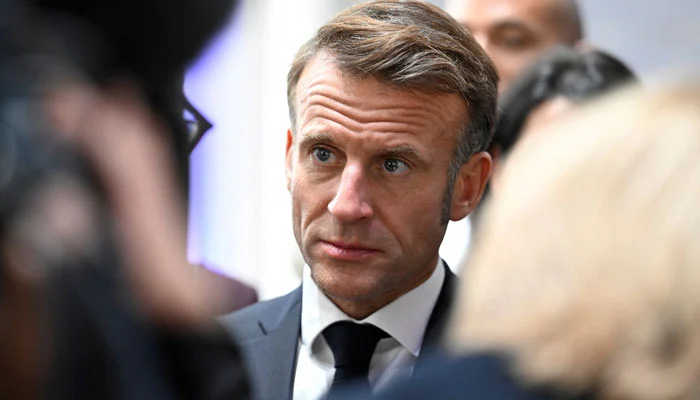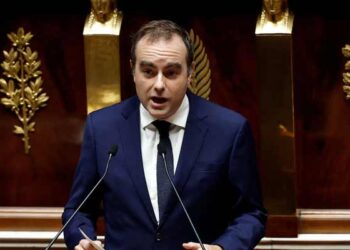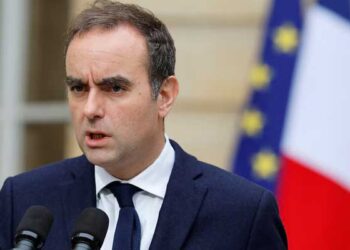Select Language:
France’s President Emmanuel Macron encountered mounting pressure on Tuesday to resign or call a snap parliamentary election, aiming to resolve political chaos that has led to the resignation of five prime ministers in less than two years. The 47-year-old centrist leader has maintained his commitment to completing his second term, which ends in 2027.
However, calls for his resignation, once considered fringe, have now gained ground amid one of the most severe political crises since the establishment of France’s Fifth Republic in 1958. As Macron’s outgoing Prime Minister Sebastien Lecornu engaged in last-minute negotiations to form a new government, former Prime Minister Edouard Philippe, who first served in 2017, suggested it’s time for a new president to resolve the deadlock.
In an interview with RTL radio, Philippe stated Macron should “leave in an orderly manner” to facilitate a solution to the crisis.
The political upheaval in France, Europe’s second-largest economy, made front-page headlines across the continent, especially as U.S. President Donald Trump urged Europe to bolster defenses and support Ukraine. Financial markets reacted negatively, with French stocks dropping 1.4% Monday and the risk premium on government bonds reaching a nine-month high.
Brigitte Gries, a 70-year-old retiree in Paris, summed up public sentiment: “It’s a mess. It’s sad.” Taxi driver Soufiane Mansour from Montpellier added, “We’re kind of a joke around the world right now. Sadly, we’ve become a bit of a clown in Europe and beyond.”
Polls indicate that former Prime Minister Philippe, who is seen as a leading candidate to represent the political center in a leadership race, is gaining traction as others distance themselves from Macron. Gabriel Attal, another former Macron supporter, openly criticized the president’s recent decisions. He was briefly prime minister last year before Macron called a snap election that resulted in a hung parliament divided into three opposing blocs.
Attal told TF1 TV, “Like many French people, I no longer understand the president’s choices.” He also dismissed the idea of Macron resigning, a stance echoed by a parliamentary group member.
Meanwhile, Lecornu has been in talks with leaders from Macron’s centrist alliance and conservative parties, focusing on securing agreements on next year’s budget. Over the next two days, he hopes to involve opposition parties, including the Socialists, to secure the necessary votes to form a majority in the National Assembly, which is crucial for passing the budget.
Lecornu plans discussions with opposition leaders today and tomorrow morning, but the far-right National Rally has refused to participate, citing no purpose in the talks. Party leaders Jordan Bardella and Marine Le Pen have reiterated their call for dissolving the National Assembly. Although the RN tops opinion polls, surveys suggest that a new election could again result in a fragmented parliament without a clear majority.






